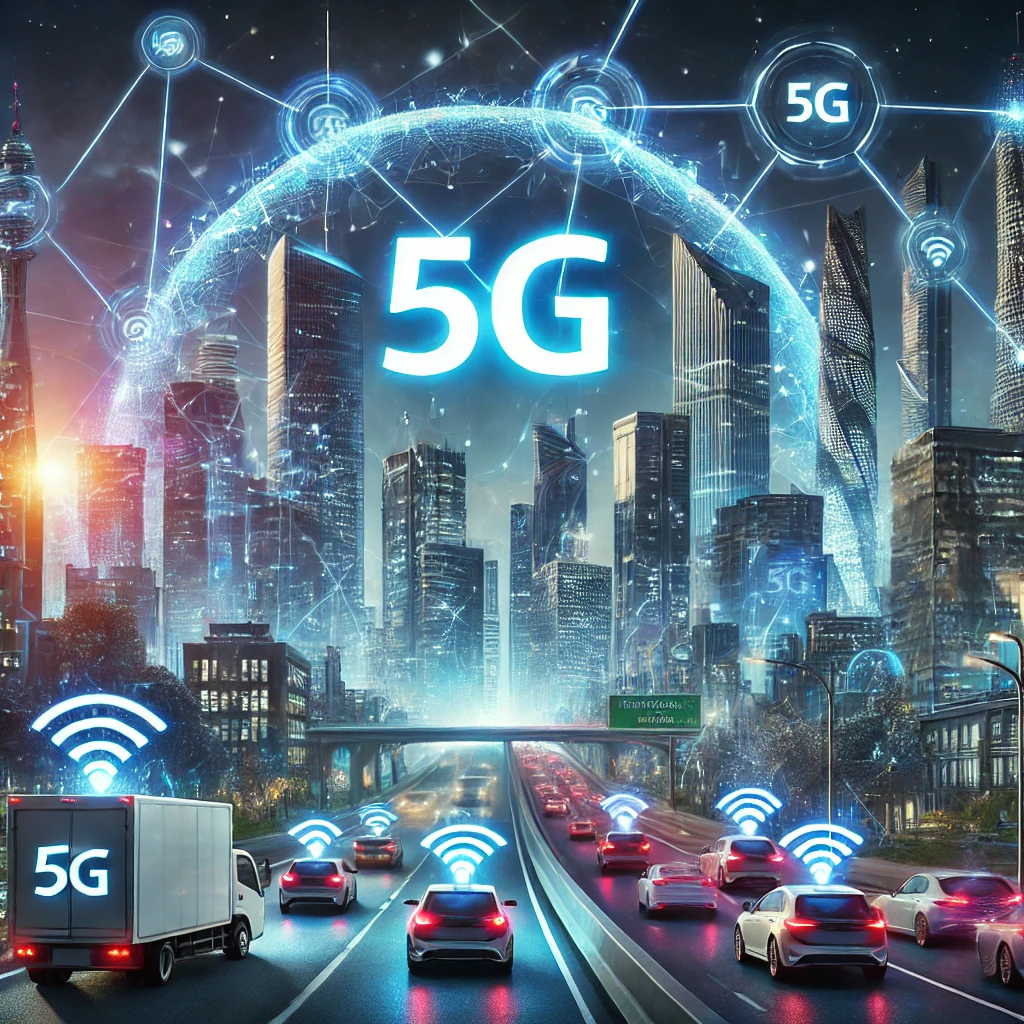Introduction to 5G Technology
The world of telecommunications is evolving rapidly, and 5G technology is at the forefront of this transformation. As the successor to 4G LTE, 5G promises faster speeds, lower latency, and increased connectivity. But what does this mean for businesses and everyday consumers? From improved mobile experiences to revolutionary applications in various industries, 5G is set to reshape how we live and work.
What Makes 5G Different?
5G technology offers significant improvements over its predecessors in several key areas:
- Speed: 5G can achieve download speeds of up to 10 Gbps, making it up to 100 times faster than 4G.
- Low Latency: With latency as low as one millisecond, 5G enables near-instant communication.
- Greater Connectivity: 5G networks support more connected devices per square kilometer, improving IoT capabilities.
- Energy Efficiency: 5G networks consume less power per transmitted bit, reducing operational costs.
How 5G Benefits Consumers
The transition to 5G brings numerous advantages to consumers, enhancing everyday digital experiences.
1. Ultra-Fast Internet Speeds
One of the most immediate benefits of 5G is the dramatic increase in internet speeds. Streaming high-definition videos, downloading large files, and playing online games will be smoother and faster.
2. Improved Mobile Connectivity
With 5G, mobile networks can handle higher traffic volumes, reducing congestion in crowded areas. This means fewer dropped calls and faster data speeds, even in stadiums, airports, and urban centers.
3. Better Smart Device Performance
5G enhances the functionality of smart devices, from AI-driven virtual assistants to smart home gadgets. It supports more efficient data transfer, making connected devices more responsive.
4. Enhanced Gaming and Augmented Reality (AR)
Cloud gaming and AR applications will see major improvements with 5G. Gamers can enjoy lag-free experiences, and AR applications, such as virtual shopping or interactive learning, will become more immersive.
5. Healthcare Innovations
Telemedicine and remote surgeries are becoming more viable with 5G, enabling real-time consultations and medical procedures performed by specialists from anywhere in the world.
How 5G Transforms Businesses
5G technology is a game-changer for businesses across various industries, leading to increased efficiency and new revenue opportunities.
1. Enhanced Communication and Collaboration
Businesses can leverage 5G for seamless video conferencing, remote work, and real-time data sharing. This improves productivity and reduces delays caused by slow network connections.
2. Industrial Automation and IoT
Manufacturers benefit from smart factories where machines communicate in real-time to optimize production. 5G supports the rapid exchange of information between IoT devices, improving automation and efficiency.
3. Retail and Customer Experience
5G enables personalized shopping experiences through AR fitting rooms, virtual assistants, and faster online transactions. Retailers can provide a more interactive and engaging experience for customers.
4. Autonomous Vehicles and Smart Cities
The development of self-driving cars and smart city infrastructure heavily relies on 5G connectivity. Faster data exchange allows for real-time navigation, traffic management, and vehicle-to-vehicle communication.
5. Financial Services and Security
Banks and financial institutions benefit from 5G’s secure and efficient data transmission, reducing fraud risks and enabling instant transactions. Mobile banking and digital payment platforms will operate with greater reliability.
Challenges and Considerations
Despite its potential, 5G adoption comes with challenges that businesses and consumers must consider:
- Infrastructure Costs: Deploying 5G requires significant investment in new network towers and equipment.
- Device Compatibility: Consumers may need to upgrade to 5G-compatible smartphones and devices.
- Security Risks: With increased connectivity, cybersecurity threats could become more complex.
- Regulatory Issues: Different countries have varying regulations on 5G deployment, which can slow down adoption.
The Future of 5G
The future of 5G is promising, with ongoing advancements set to unlock even greater possibilities. As more countries expand their 5G networks, industries will continue to innovate and find new ways to leverage this powerful technology. From smart homes and healthcare to transportation and entertainment, 5G is not just an upgrade—it’s a revolution that will shape the digital landscape for years to come.
Conclusion
5G technology is set to change the way businesses operate and how consumers interact with the digital world. With unparalleled speed, connectivity, and efficiency, 5G opens the door to endless possibilities. While challenges exist, the benefits far outweigh the concerns, making 5G a crucial element in the future of communication and innovation. Whether you’re a business owner looking to optimize operations or a consumer eager for better mobile experiences, 5G is here to redefine connectivity.
